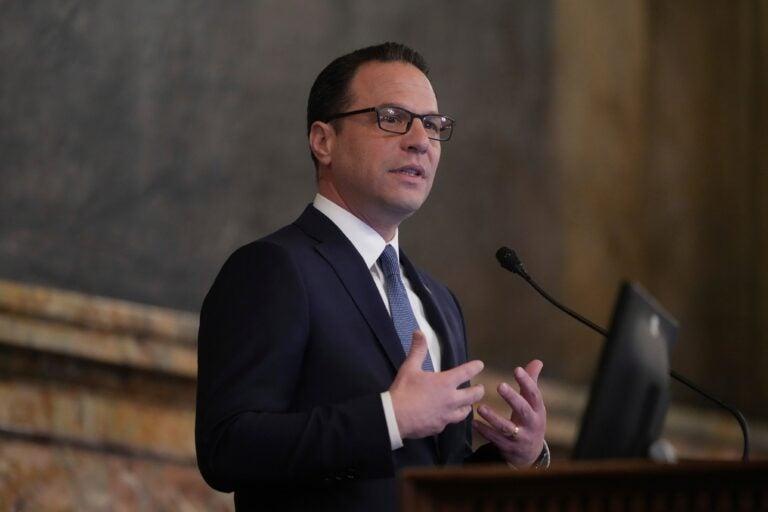Governor Josh ShapiroŌĆÖs Comprehensive Plan to Enhance PennsylvaniaŌĆÖs Education Funding
Pennsylvania Governor Josh Shapiro has introduced a new budget proposal that places a significant focus on improving education funding statewide. This initiative aims to meet the evolving needs of students, educators, and school districts by allocating resources strategically to foster academic success and well-being. This article delves into the core elements of ShapiroŌĆÖs education budget, examining how the proposed investments could transform classrooms and support systems throughout Pennsylvania.
Enhancing School Funding and Resource Allocation
At the heart of Governor ShapiroŌĆÖs budget is a commitment to strengthening public education through increased financial support and targeted resource distribution. The plan includes a 5% boost in base funding for school districts, designed to ease budget constraints and improve educational quality across the state. A key priority is expanding early childhood education, with additional funding aimed at broadening access to pre-kindergarten programs, particularly benefiting underserved communities.
- $500 million dedicated to upgrading and modernizing school infrastructure
- New grant programs focused on enhancing mental health services in schools
- Expansion of after-school and summer enrichment programs
- Increased funding for special education initiatives
The proposal also introduces a more efficient grant distribution system to ensure equitable and timely funding delivery. By prioritizing mental health, the plan aims to equip schools with essential personnel such as counselors and social workers, addressing the rising concerns about student mental wellness.
| Funding Category | Proposed Amount | Intended Use |
|---|---|---|
| Base School Funding | $2.3 billion | Boost overall district budgets |
| Mental Health Services | $150 million | Recruit counselors, therapists, and support staff |
| Early Childhood Education | $200 million | Expand statewide pre-K access |
| Infrastructure Grants | $500 million | Modernize and repair school facilities |
Addressing Teacher Compensation and Retention
Recognizing the persistent challenges in recruiting and retaining qualified educators, ShapiroŌĆÖs budget allocates substantial funds to improve teacher salaries and support systems. The proposal aims to narrow the pay gap between Pennsylvania teachers and their national counterparts, particularly focusing on districts experiencing acute shortages in both urban and rural areas.
In addition to salary enhancements, the plan invests in professional growth opportunities and mental health resources for educators, acknowledging that retention depends on a supportive work environment as much as competitive pay. Highlights include:
- $250 million for salary supplements targeting high-demand subject areas
- Expanded mentorship programs to support early-career teachers and reduce turnover
- Increased funding for school-based mental health services aimed at reducing educator burnout
| Retention Initiative | Budgeted Amount | Projected Outcome |
|---|---|---|
| Salary Supplements | $250 million | Attract and retain teachers in critical shortage fields |
| Mentorship Programs | $50 million | Lower early-career attrition rates |
| Mental Health Supports | $40 million | Enhance teacher well-being and job longevity |
Expanding Early Childhood and Special Education Services
Governor ShapiroŌĆÖs budget underscores a strong dedication to early learning and special education. By increasing funding for preschool programs, the plan aims to boost enrollment by approximately 30%, particularly targeting families with limited access to quality early education. This investment is critical for laying a solid foundation for lifelong learning and social development.
Moreover, the proposal enhances support for students with disabilities by allocating resources for additional special education personnel, adaptive technologies, and inclusive classroom materials. These efforts are designed to promote equitable educational opportunities and improve outcomes for all learners.
- $75 million to expand early intervention services
- $50 million for professional development in inclusive teaching practices
- $40 million to upgrade accessibility tools and classroom technology
| Program Focus | Funding Amount | Anticipated Impact |
|---|---|---|
| Preschool Program Expansion | $120 million | Increase enrollment by 30% |
| Special Education Staffing | $60 million | Hire over 500 specialists statewide |
| Technology & Accessibility | $40 million | Enhance inclusive learning environments |
Modernizing School Facilities and Advancing Technology Access
To bridge the digital divide and improve learning environments, ShapiroŌĆÖs budget dedicates significant funds to refurbishing school buildings and expanding technology infrastructure. This includes investments in broadband connectivity, up-to-date computers, and interactive educational software, ensuring students across Pennsylvania have equitable access to modern learning tools.
Key initiatives include:
- Grants for repairing and upgrading aging school facilities to meet current safety and accessibility standards
- Funding to expand wireless networks and procure educational technology tailored to diverse student needs
- Professional development programs to help educators integrate new technologies effectively into their teaching
| Investment Area | Allocated Funds | Purpose |
|---|---|---|
| Facility Renovations | $150 million | School building repairs and upgrades |
| Technology Procurement | $100 million | Hardware and software acquisition |
| Broadband Expansion | $50 million | Improve internet access statewide |
| Teacher Technology Training | $25 million | Workshops on integrating tech in classrooms |
Conclusion: A Forward-Looking Vision for PennsylvaniaŌĆÖs Education
Governor Josh ShapiroŌĆÖs education budget proposal presents a comprehensive strategy to tackle some of the most pressing challenges facing PennsylvaniaŌĆÖs schools today. By focusing on increased funding for teacher salaries, mental health support, early childhood education, and infrastructure modernization, the plan aims to build a stronger, more equitable education system. As the proposal advances through the legislative process, educators, families, and policymakers will be closely monitoring its implementation and the tangible benefits it delivers to communities across the state.








